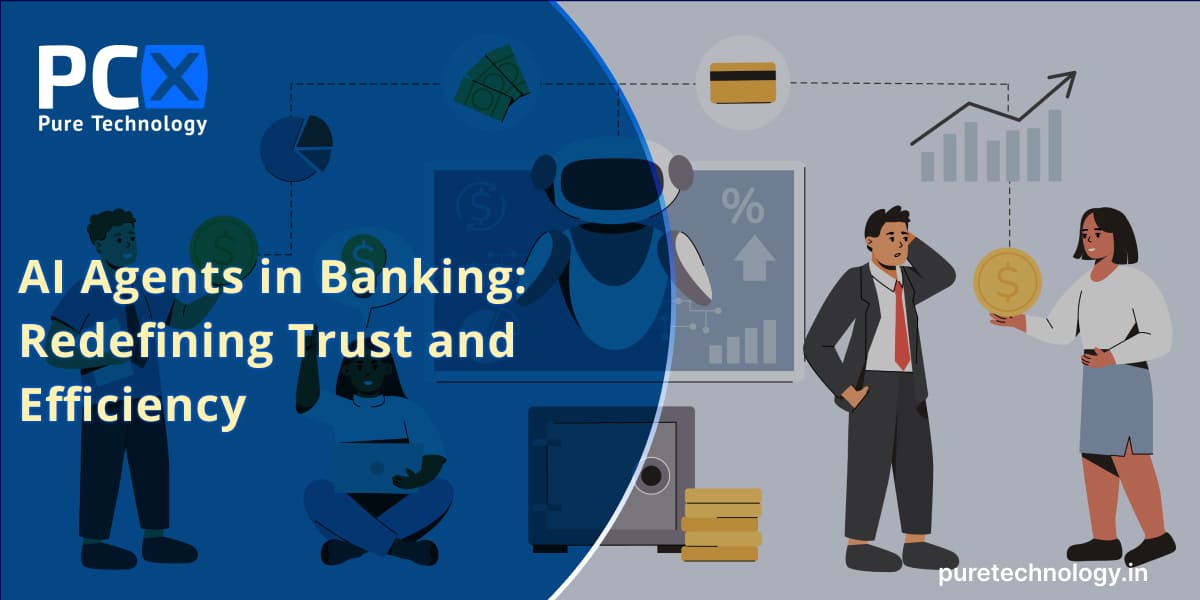AI Agents in Banking: Redefining Trust and Efficiency
The banking industry has always been defined by trust, precision, and security. In 2025, it’s also defined by Artificial Intelligence (AI) — specifically, AI agents that can handle complex financial operations, customer interactions, and risk assessments.
But beyond the buzz, what do AI agents really mean for the future of banking? Are they secure, transparent, and trustworthy? Or are they introducing new challenges to one of the most regulated industries in the world?
This article explores the truth about AI agents in banking and how they are reshaping the foundations of modern financial systems.
The Rise of AI Agents in the Financial Sector
AI agents are autonomous, intelligent systems capable of understanding, reasoning, and executing banking processes with minimal human intervention. Unlike traditional automation tools that follow predefined rules, AI agents can analyze data, learn patterns, make recommendations, and act independently based on real-time insights.
In the financial sector, these agents are being deployed to manage customer queries, detect fraudulent activities, assess credit risks, and even assist in investment decisions.
From digital assistants like chatbots to backend compliance engines, AI is no longer a support tool — it’s becoming the backbone of banking operations.
Where AI Agents Are Making the Biggest Impact
- Customer Service Automation
AI-powered chat and voice agents are available 24/7, offering personalized banking support, handling account inquiries, and resolving issues instantly — reducing response time and enhancing satisfaction. - Fraud Detection and Risk Management
Machine learning algorithms analyze vast transaction data in real time to identify unusual patterns, preventing fraud before it happens. - Credit Scoring and Loan Processing
AI agents assess customer profiles more accurately by analyzing unconventional data sources, improving credit decisions while minimizing human bias. - Wealth and Portfolio Management
Intelligent AI systems assist financial advisors with predictive insights, helping clients make better investment decisions. - Regulatory Compliance and Reporting
AI agents automate compliance checks, monitor transactions for suspicious activity, and generate audit-ready reports — ensuring adherence to ever-evolving regulations.
Balancing Automation with Trust
While AI agents bring undeniable efficiency and innovation, the core challenge for banks remains trust. Financial institutions operate under strict regulatory environments where accuracy, transparency, and accountability are non-negotiable.
To build trust, banks must ensure that AI agents operate with explainable AI (XAI) principles — meaning every automated decision should be interpretable and auditable. Transparency in algorithms and data handling is essential to maintain both customer confidence and regulatory compliance.
Key Benefits of AI Agents in Banking
- Operational Efficiency: Automates repetitive tasks, freeing employees to focus on strategic initiatives.
- Cost Reduction: Reduces overhead expenses related to customer support and manual processing.
- Enhanced Security: Detects anomalies faster than human analysts, improving fraud prevention.
- Better Decision-Making: Offers insights from predictive analytics for smarter financial planning.
- Personalized Experience: Tailors recommendations and product offerings to individual customer profiles.
Challenges Banks Must Overcome
- Data Privacy: Ensuring customer data is handled securely and ethically.
- Algorithmic Bias: Preventing biased outcomes in lending, hiring, or credit scoring.
- Regulatory Compliance: Adapting to evolving laws on AI use in financial services.
- Human Oversight: Maintaining balance between automation and human accountability.
The Future of AI in Banking
AI agents will not replace bankers — they will augment human intelligence. The future of banking will be defined by hybrid teams of humans and AI working together to enhance accuracy, speed, and decision-making.
In the near future, expect to see more autonomous financial assistants, real-time compliance bots, and AI-driven risk models integrated into every layer of the banking infrastructure.
Banks that adapt early will gain a competitive edge through faster service delivery, deeper customer relationships, and stronger security frameworks.
Conclusion
AI agents are redefining what it means to be a modern bank. They combine precision, efficiency, and intelligence with the reliability that the financial world demands.
The truth is clear: AI isn’t replacing banking — it’s reimagining it.
Institutions that embrace AI responsibly today will lead the financial transformation of tomorrow.
Call us for a professional consultation












Leave a Reply